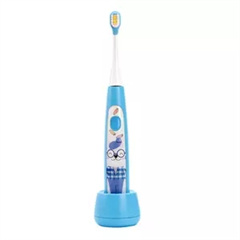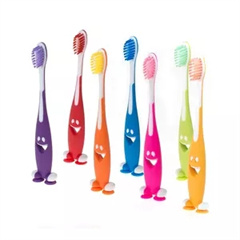Manual Toothbrush:
- Pros:
- Cost-Effective: Manual toothbrushes are generally more affordable upfront.
- Portability: They are easy to carry around and travel with.
- Simple to Use: No need for charging or replacing batteries.
- Wide Variety: There are numerous options in terms of bristle type, size, and texture.
- Cons:
- Requires Manual Effort: The effectiveness of brushing depends on your technique and effort.
- Less Consistency: Some people might not brush for the recommended two minutes consistently.
Electric Toothbrush:
- Pros:
- Efficient Cleaning: Many electric toothbrushes offer advanced cleaning technologies, such as oscillating-rotating or sonic vibrations, which can help remove plaque more effectively.
- Built-in Timers: Most electric toothbrushes have built-in timers that ensure you brush for the recommended two minutes.
- Easy to Use: The powered brushing motion does much of the work, making it easier for people with limited dexterity or specific oral health needs.
- Pressure Sensors: Some electric models have pressure sensors that alert you if you’re brushing too hard, which can help prevent damage to your teeth and gums.
- Fun for Children: Electric toothbrushes with fun designs and characters can make brushing more enjoyable for kids.
- Cons:
- Cost: Electric toothbrushes can have a higher upfront cost, and replacement brush heads or batteries may add to the ongoing expense.
- Charging or Battery Replacement: Depending on the model, you’ll need to either recharge the toothbrush or replace its batteries periodically.
- Bulkier: Electric toothbrushes are larger and might be less convenient for travel.
- Learning Curve: Some people might need time to adjust to the powered brushing sensation.
Which Is Better? Both manual and electric toothbrushes can effectively clean your teeth when used correctly. If you brush your teeth thoroughly and regularly with a manual toothbrush and maintain proper technique, you can achieve good oral hygiene. However, electric toothbrushes can offer added benefits in terms of efficiency, consistency, and features like timers and pressure sensors.
Electric toothbrushes are often recommended for individuals who have difficulty maintaining a consistent brushing technique or who have specific oral health concerns, such as gum disease or braces. Additionally, children may find electric toothbrushes more engaging, encouraging them to brush regularly.
Ultimately, the “better” choice depends on your personal preferences, oral health needs, and budget. If you’re unsure, consider discussing your options with your dentist or dental hygienist. They can provide guidance tailored to your individual circumstances.








